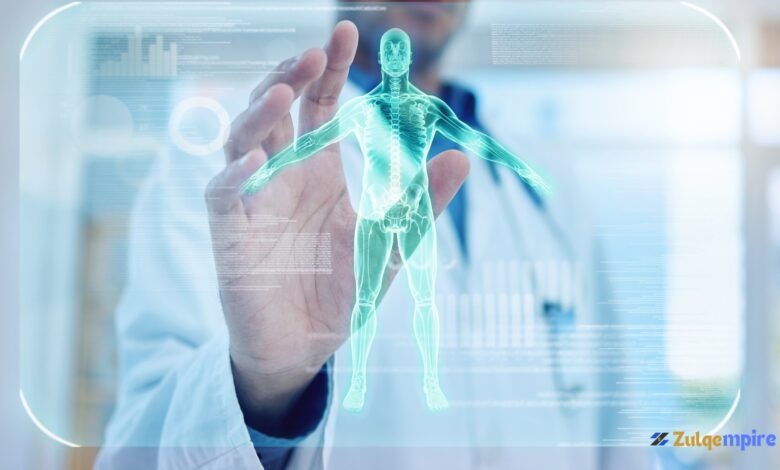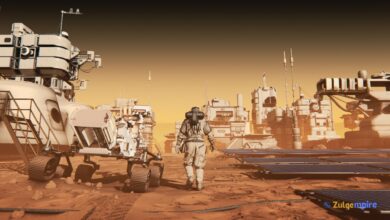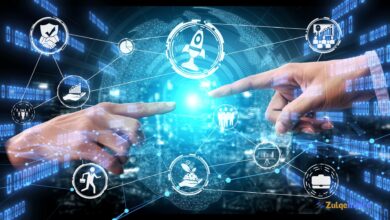How AI is Revolutionizing in Medical and Imaging

AI is Revolutionizing in Medica Since its inception, medical imaging has been an essential component of the healthcare system. From X-rays to magnetic resonance imaging (MRI), these technologies offer extremely helpful insights into the human body. They assist medical professionals in diagnosing ailments, keeping track of therapies, and enhancing patient outcomes. On the other hand, the ever-increasing quantity of medical images and the intricate nature of their analysis provide several significant obstacles. Artificial intelligence
Enhanced Accuracy and Improved Consistency
Here’s where AI’s amazing power is. AI is Revolutionizing Medical imaging. Artificial intelligence, especially deep learning, can improve medical picture analysis. Deep learning algorithms can learn from massive medical image datasets. They can see minor irregularities humans miss. Early and precise diagnoses improve patient care. AI can automate many time-consuming picture-processing tasks. Because of this, radiologists and other medical practitioners can focus on more complex patient interactions. Human interpretation of medical images is subjective and error-prone. AI algorithms reduce diagnosis variability by being more consistent and objective. This allows quantitative analysis and disease discovery at e-discovery. Artificial intelligence can extract tumor size and blood flow patterns from medical pictures. These data can be used to track illness development, assess patient response to treatment, and customize patient care. AI systems can detect subtle changes in medical pictures that may indicate early illness. This allows early intervention, improving treatment outcomes.
Transforming Medical Specialties
Various artificial intelligence applications are used in medicine. AI is revolutionizing medical imaging, and it is constantly being developed. A few examples of how artificial intelligence affects different medical specializations are provided below.
AI is Revolutionizing Medical Fields like Oncology and Cardiology

AI is Revolutionizing Medical analyzing power helps to read CT scans, MRI scans, and PET scans; artificial intelligence can diagnose tumors, determine the stage of the tumor, and forecast how the tumor will respond to treatment. This information significantly helps oncologists develop individualized treatment programs for cancer patients. Additionally, artificial intelligence can analyze CT scans and echocardiograms to find anomalies in the heart, such as coronary artery disease and problems with the heart valves. Because of this, cardiologists can diagnose cardiac diseases earlier and with greater accuracy.
Neurology and Neuroscience

AI analyzing power helps analyze MRIs and CT scans of the brain to identify anomalies such as strokes, tumors, and dementia. If neurologists have access to this information, they will be able to diagnose neurological illnesses more correctly and devise more suitable treatment strategies.
Ai Analysing Power in Radiology and Drug Discovery
AI can be used in Discoveryscoveryks such as image segmentation and identifying and outlining specific regions of interest in an image. This significantly improves the efficiency of radiologists’ workflow, allowing them to focus on more complex analyses. In drug discovery, AI can analyze medical images to identify potential drug targets and assess the efficacy of new drugs. This can accelerate the drug development process and lead to the creation of more effective treatments.
Challenges in AI Use
However, despite the great promise it possesses, artificial intelligence in the field of medical imaging is still in its infancy. The circumstance presents difficulties that demand attention. A significant issue is data bias; training artificial intelligence systems on biased data sets may produce inaccurate diagnoses for certain groups. Another challenge is that it is difficult to explain artificial intelligence’s decisions, which raises doubts about its dependability and transparency. Although AI can be accurate, explaining its conclusions can be challenging. Furthermore, there are regulatory hurdles to overcome, as uses of artificial intelligence in medicine require extensive testing and licensing, which can be both time-consuming and expensive. Integrating artificial intelligence (AI) into preexisting healthcare systems is difficult because of data privacy security concerns, and the requirement to train healthcare staff on AI is Revolutionizing Medical.
Summary
Working together, humans and AI will revolutionize medical imaging. AI can automate routine tasks, increase precision, and aid in decision-making. However, human doctors will always be needed to evaluate results, understand patient histories, and show compassion. By overcoming obstacles and fostering a synergistic partnership, we can realize AI’s full potential in medical imaging and transform healthcare. This collaboration could lead to earlier disease detection, more accurate diagnoses, and personalized treatment plans, improving patient outcomes. AI in medical imaging is an exciting frontier that promises to revolutionize healthcare for future generations.
Read More: University of East Anglia (UEA) Scholarships 2024/2025




